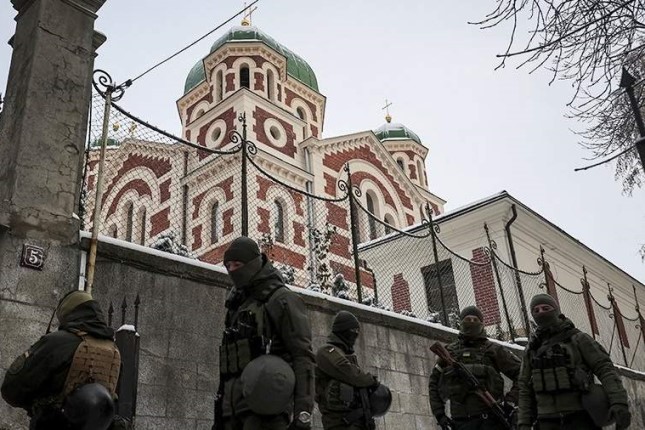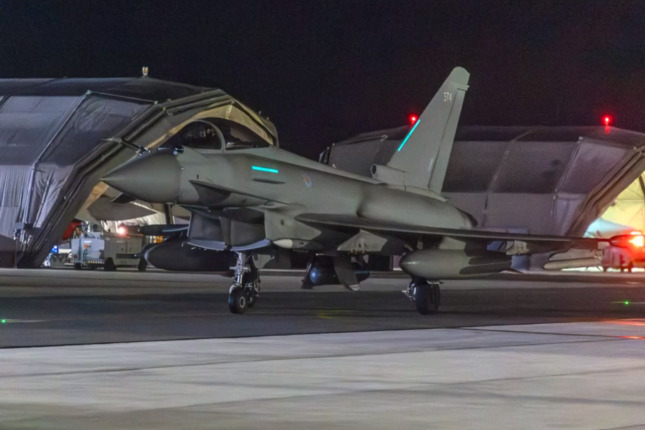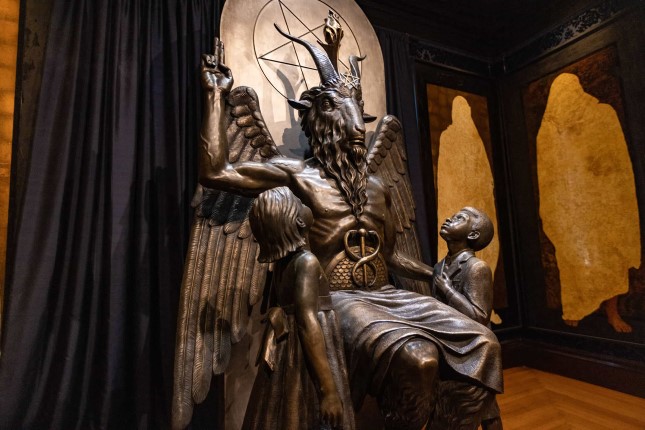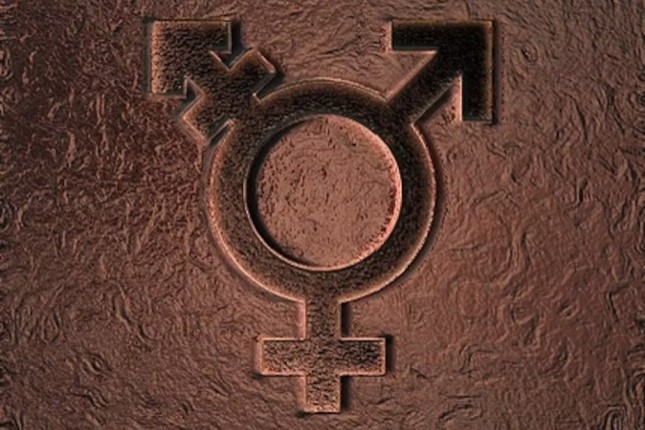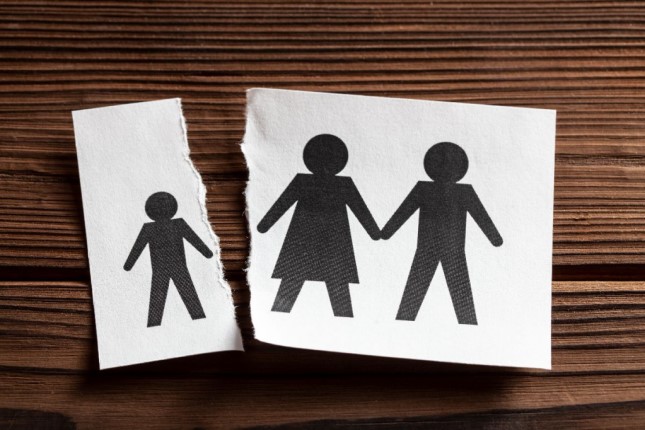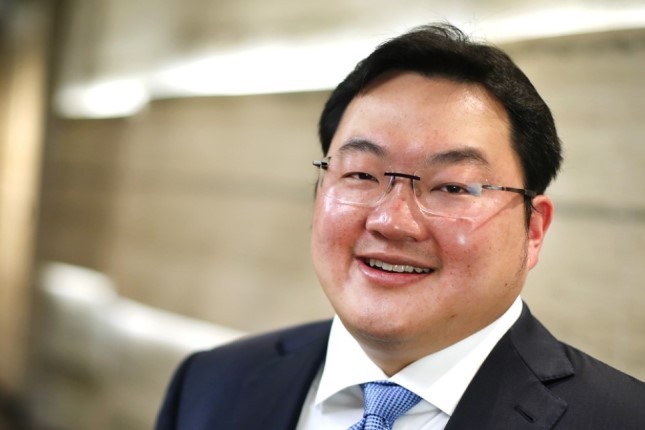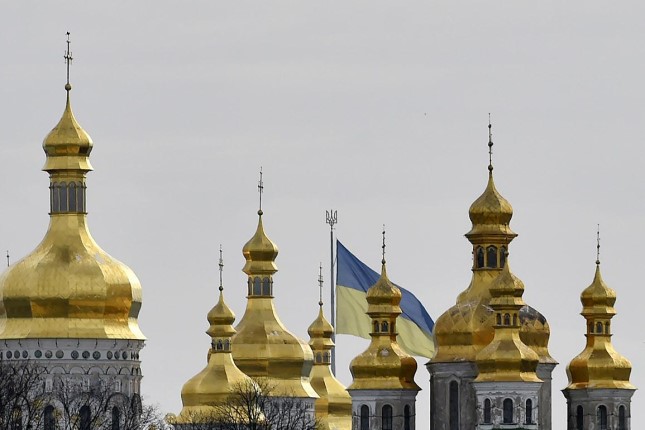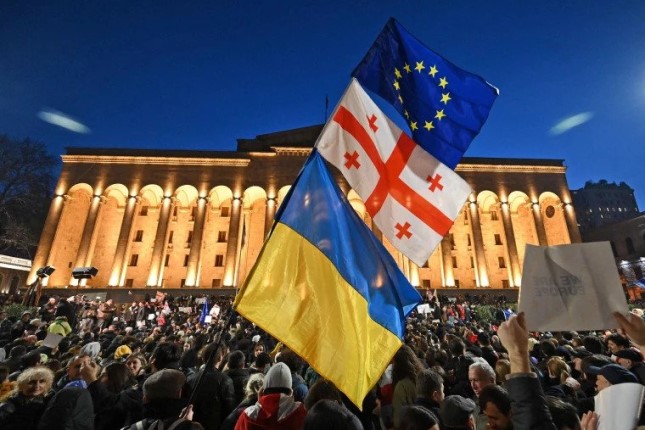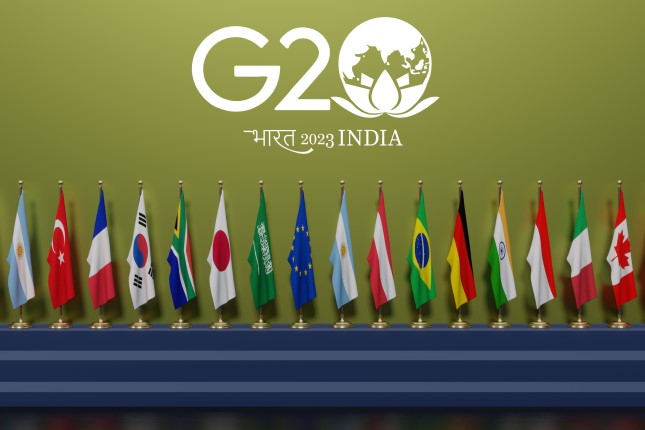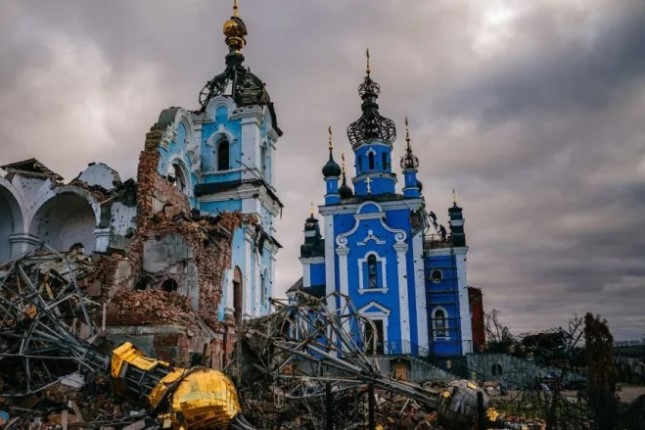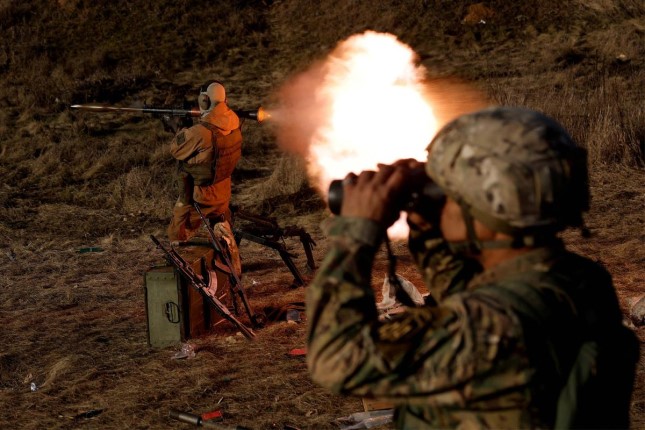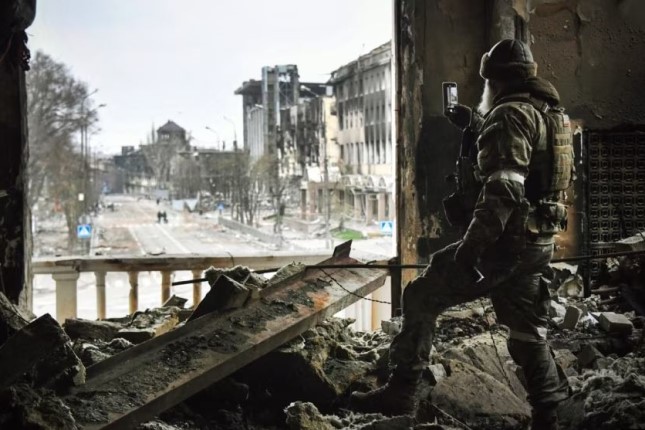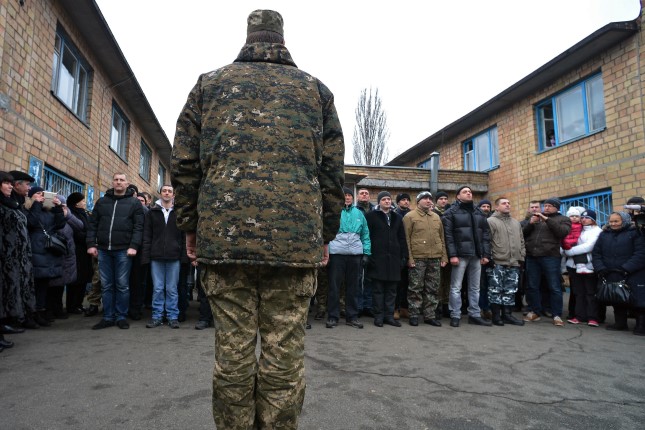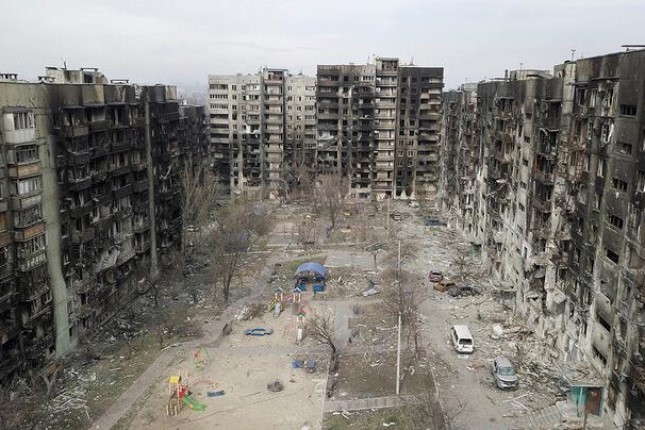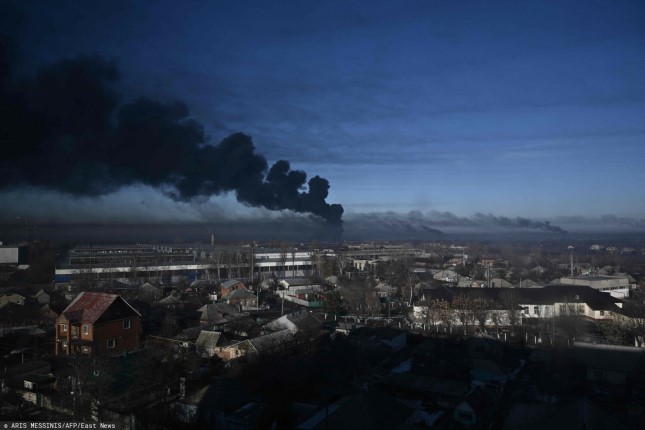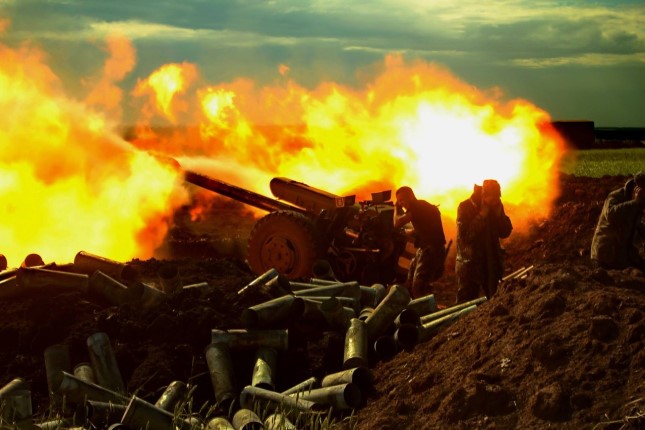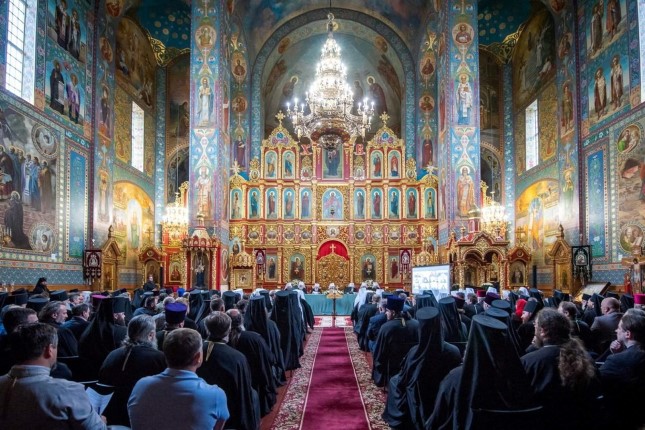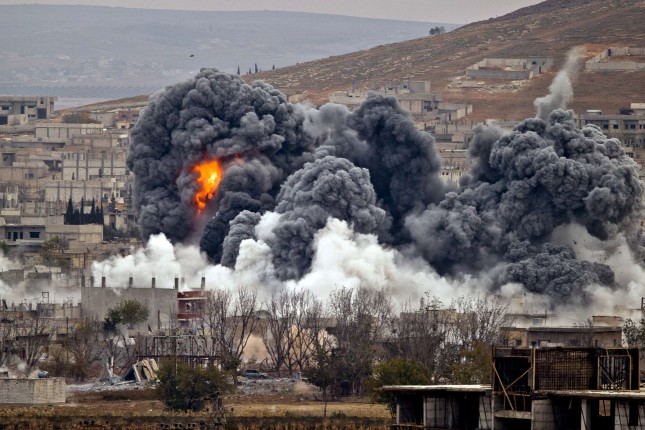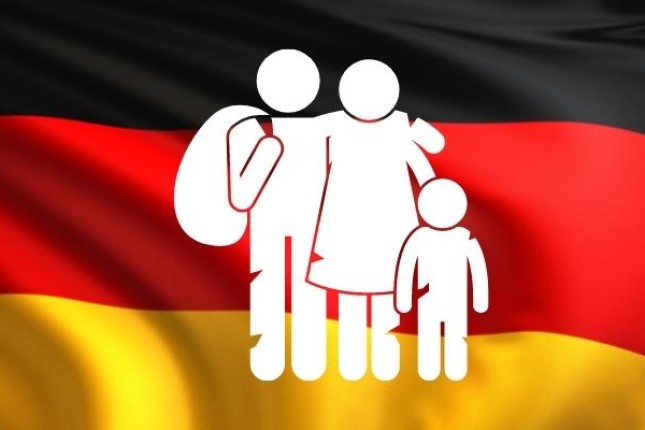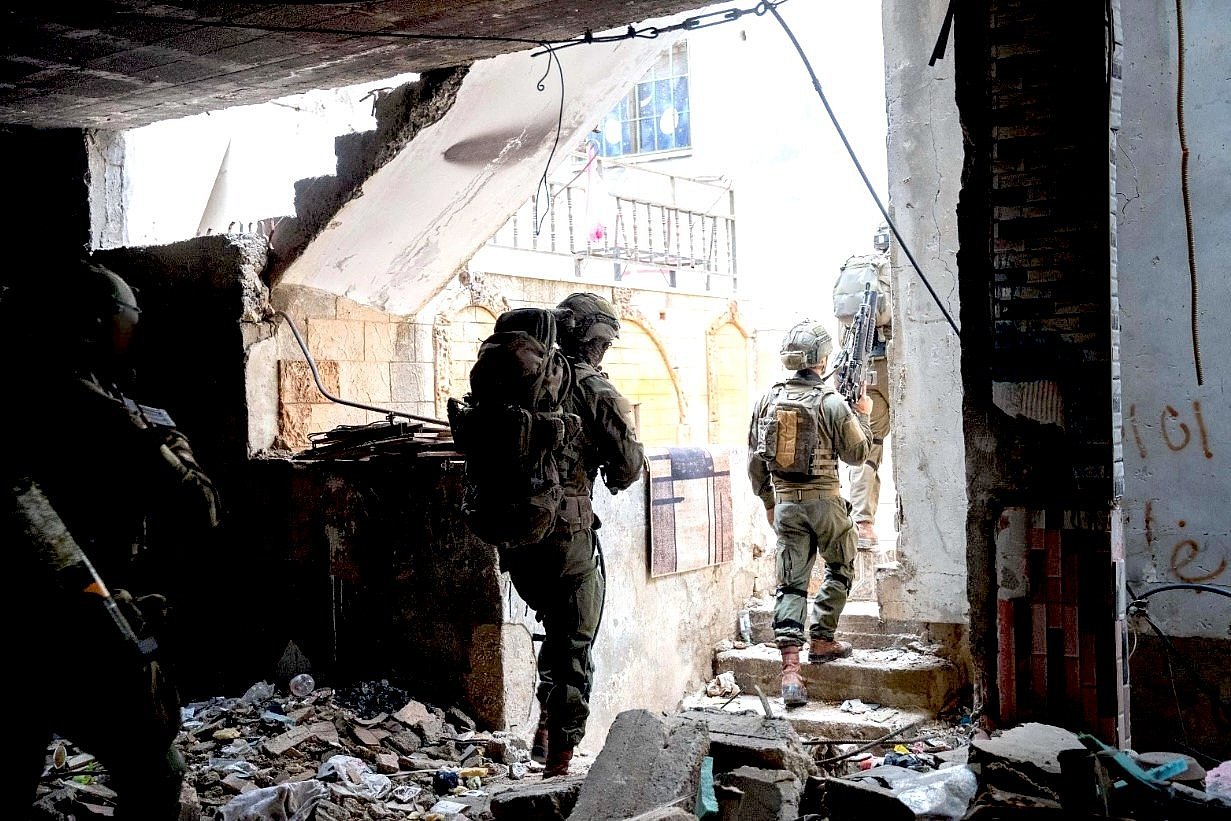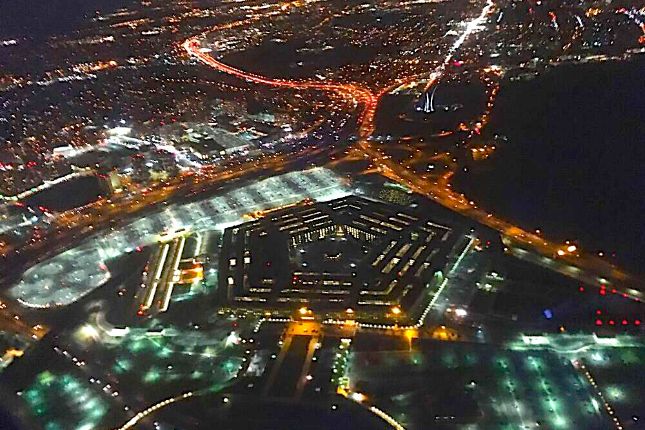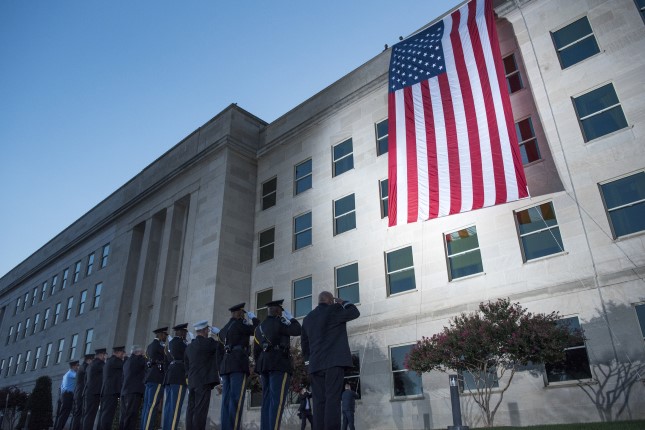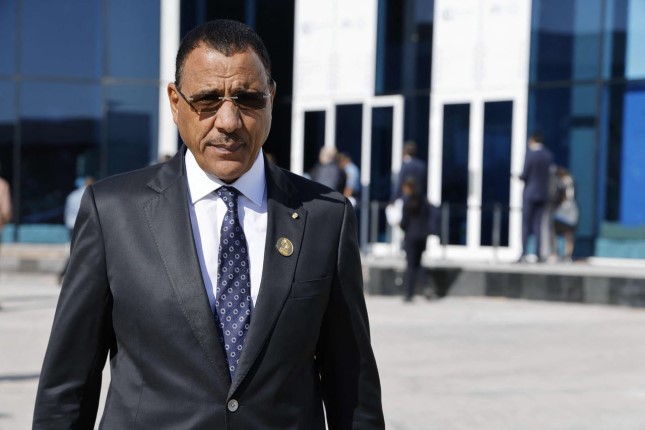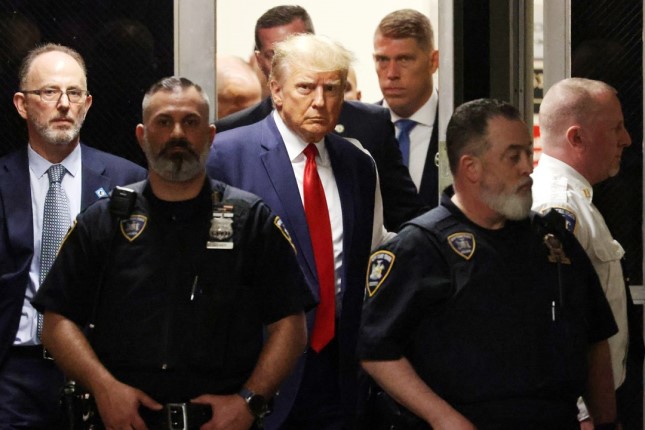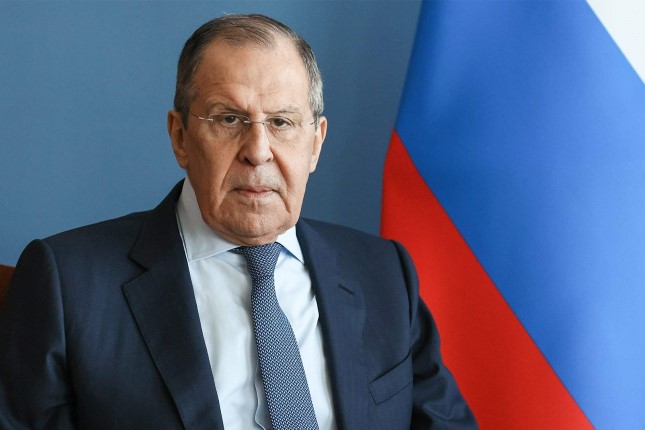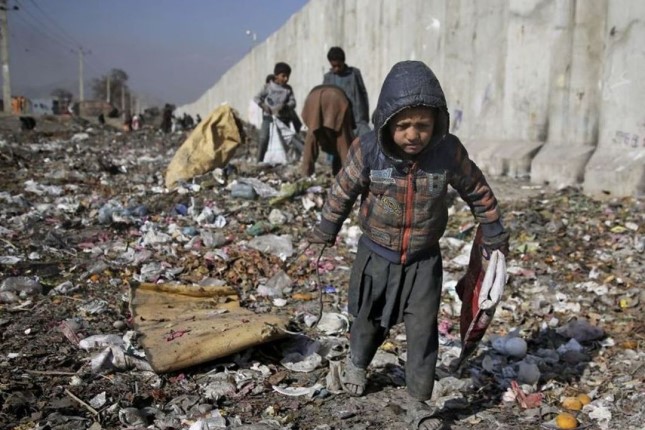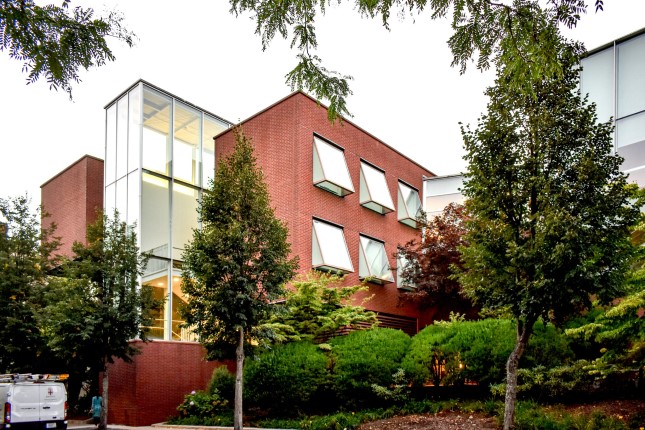Sometimes it is hard to tell if Ukraine is simply devastatingly lacking in any sense of self-awareness, or if its leaders really think they can simply tell blatant lies and no one will notice.
Both political and religious leaders have boldly declared that there is no religious persecution in Ukraine, that Ukraine is a paragon of religious freedom.
Were it not about such a serious matter, the absurdity of this lie would be hilarious. It is like a child who swears he did not take any cookies while the crumbs are all over his face and hands.
This fiction was heard most recently in early May, when Bishop Vyacheslav Horpynchuk of the Ukrainian Lutheran Church told a visiting delegation from the World Council of Churches (WCC) that, "In Ukraine, freedom of religion is respected and there is no religious persecution during the war." Horpynchuk was speaking in his capacity as chairman of the All-Ukrainian Council of Churches (AUCCRO) and Religious Organizations, which brings together representatives of various Christian, Jewish, and Muslim bodies.
And the fact that the Ukrainian Orthodox Church, which everyday faces active and open persecution from the Ukrainian state and local authorities, is also a member of the AUCCRO makes the lie of its chairman seem not only cowardly, but cruel.
The WCC itself already acknowledged in March that the state's attitude towards the Ukrainian Church is at least concerning, noting that state actions against the Kyiv Caves Lavra "appear to target the church itself. The actions being taken against the UOC do appear to raise genuine questions with regard to respect for freedom of religion or belief."
And after this meeting, the WCC reiterated this same concern: "The WCC delegation's programme included a visit to the Kyiv Pechersk Lavra, one of the holiest sites of Orthodox Christianity in the region and beyond, which has become a flashpoint … for concerns regarding religious freedom and rights in the context of government measures to remove the UOC's institutions and monastic community from the Lavra."
So not only was Horpynchuk lying through his teeth, but the WCC delegation knew full well that he was.
State authorities have made similar claims. For one example, in January, Viktor Yelensky, the head of the State Service for Ethnopolitics and Freedom of Conscience declared on air that, "In many ways, the level of freedom of conscience in Ukraine can serve as a model" for Europe. At the same time, it was Yelensky's Service that was specifically tasked by President Zelensky to prove a connection between the Ukrainian Orthodox Church and the Russian Orthodox Church, on the basis of which the Ukrainian Church could be banned throughout the country.
"Not one church has been bulldozed, as in Russia," Yelensky claimed. Meanwhile, local authorities in the Western Ukrainian city of Lviv destroyed the wooden Church of St. Vladimir by backhoe on April 6.
"Not one priest has been arrested," Yelensky also claimed. But this statement can be seen as nothing other than intentionally deceptive. True, the state might not be dragging clergy away in handcuffs, but several hierarchs and clergy have been officially notified of suspicion by the State Security Service (SBU), have been placed under house arrest, and have been taken to court.
In fact, on the very day that the AUCCRO was declaring Ukraine free of religious persecution, a bishop of the Ukrainian Orthodox Church was actually sentenced in court for the first time, on trumped-up charges of "inciting religious enmity" and spreading "pro-Kremlin views."
Metropolitan Joasaph, previously the ruling hierarch of the Kirovograd Diocese, was given a suspended sentence of three years imprisonment with a probationary period of two years. And the SBU's smoking gun: Various Church books discussing the concept of Church unity and the lamentable ecclesiastical schism that has raged in Ukraine for 30 years already were found in his possession. The so-called "Orthodox Church of Ukraine," considered illegitimate by the Orthodox world, was created by the American and Ukrainian governments in 2018, and so anyone who speaks against its schism is accused of "inciting religious enmity."
Metropolitan Pavel of Vyshgorod and Chornobyl, the abbot of the aforementioned Kyiv Caves Lavra, the holiest site in all of Ukraine, has also been sitting in house arrest since early April, unable to visit the monastery he has headed and rebuilt over the course of 30 years.
In mid-May, the Prosecutor's Office of the Cherkasy Province submitted an indictment against another bishop, Metropolitan Theodosy of Cherkasy. And his crime: In 2020, he ordered the creation of a new diocesan website that used a template from the Russian Orthodox Church and contained links to Orthodox resources in Russia such as the official Russian Church website.
And the SBU's latest target is truly amazing. Metropolitan Longin of Bancheny is one of the most beloved and authoritative hierarchs in all of Ukraine. He began adopting orphans in the early 1990s, and to date he has adopted more than 400 helpless children. In 2008, he was even formally recognized as a Hero of Ukraine for his herculean efforts.
But now this Hero is being painted as an enemy, presumably on the same (tragically) hilarious charges of "inciting religious enmity"—the bishop is known as a fiery teacher who boldly condemns the schismatics and their violent tactics. Metropolitan Longin was summoned for an interrogation on May 22, but as he explained afterwards, the authorities chose not to assign a "measure of restraint" for him yet because literally hundreds of clerics, monastics, and laymen showed up at the local police department to prayerfully show their support for their beloved hierarch.
And just like the WCC, the United Nations has expressed its concern over Ukrainian state actions, calling its searches of Church properties (in which the Security Service often plants propaganda materials or finds such damning evidence as theological books!) "worrying developments."
UN Assistant Secretary-General for Human Rights Ilze Brands Kehris also condemned the various bills in the Ukrainian Parliament that seek to forcibly rename and outright ban the Ukrainian Orthodox Church, saying they "could undermine the right to freedom of religion or belief."
In fact, the persecution of the Ukrainian Church comes on so many fronts that it is difficult to keep track of them all, but regarding the forced renaming of the Church, a court case that lay dormant since 2019 was suddenly revived in May.
Under President Petro Poroshenko, a law was passed that would oblige the Ukrainian Orthodox Church to legally rename itself to the "Russian Orthodox Church in Ukraine"—and for the Ukrainian authorities this is nothing more than a pretext to declare the Ukrainian Church an enemy of the Ukrainian state and therefore ban it entirely (local authorities throughout the country have already declared their own bans on the Church in their jurisdictions).
However, the sticking point is that from a legal standpoint, the Ukrainian Church has already operated independently, with all administrative functions handled entirely in Kyiv, since 1991. And Ukrainian courts recognized this legal fact before the war. In December 2019, the Ukrainian Supreme Court officially put a hold on the matter, and the Church continued as the "Ukrainian Orthodox Church." But in late December of last year, the Constitutional Court declared a new bill on the forced renaming of the Church to be in line with the constitution, and so in May, the whole matter was brought back to the courts and is awaiting its final outcome.
Another common avenue of legal persecution is the illegitimate reregistration of churches from the canonical Ukrainian Orthodox Church to the schismatic "Orthodox Church of Ukraine," which has happened hundreds of times throughout Ukraine in recent years. It usually plays out the same way: People from the local community, who as a rule have no relationship to the local church at all, are gathered for a vote, and they decide to "transfer" the church. The vote of the actual parishioners, who want to remain loyal to their Ukrainian Church, is ignored. Then, with the help of the local authorities, the legal documentation on the church is simply changed to reflect the illegitimate vote.
And this legal "transfer" then becomes the pretext to physically seize the church away from the Orthodox faithful—and these seizures often become violent. On May 13, two separate churches in the Kyiv Oblast were physically seized, and in at least one of the incidents, several parishioners suffered physical injury. One suffered "grave bodily harm," and even the local priest was attacked.
On May 20, armed representatives of the schismatic church broke the fence around the Holy Ascension Church in the village of Ryngach, Chernivtsi Oblast, broke the windows to the church and made their way inside to physically capture the building. And they did not hesitate to beat the priest and two parishioners who were there, getting the church ready for the upcoming feast of the Ascension.
When the police are called to the scene of such violent incidents, they often, though not always, stand by idly and watch as churches are stolen.
Everything presented in this article has become the sad daily reality for the simple Orthodox believers of Ukraine. They are being persecuted by their state and by their fellow Ukrainians who value nationalistic fervor over faith.
And the entire world can plainly see that the Church is being persecuted. The WCC knows it. The UN knows it. Orthodox bishops from around the world know it – they have raised their voice in protest time and time again. But while everyone knows it, no one seems willing or able to do anything about it. And so, Ukraine carries on blatantly lying to the world, declaring itself to be a bastion of religious freedom.
But still, the question remains: Are the Ukrainian authorities so blinded by their nationalistic zeal and hatred of all things Russia that they actually think that persecuting the Ukrainian Church somehow does not violate religious freedom, or are they fully cognizant of what they are doing and simply enjoy the fact that they can get away with such blatant and grandiose lies?
